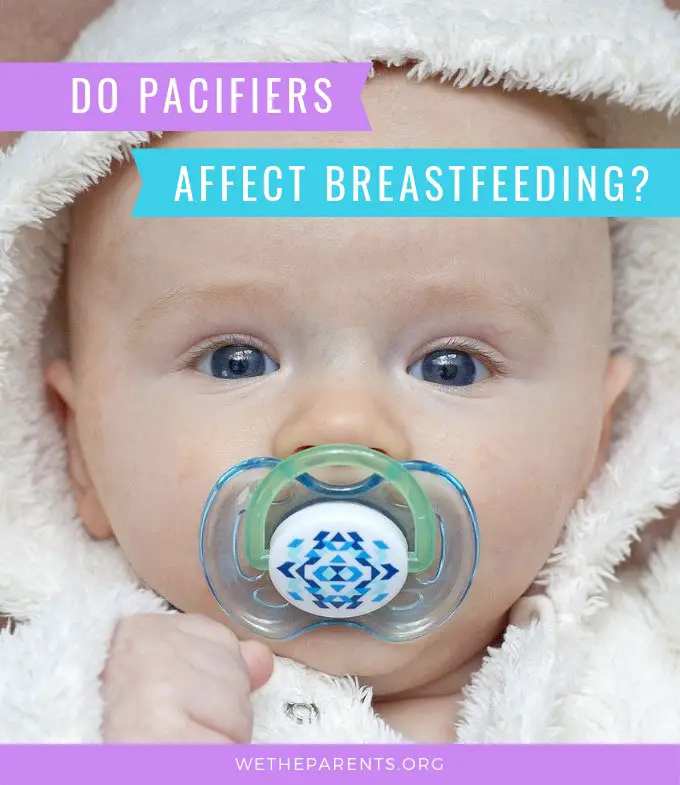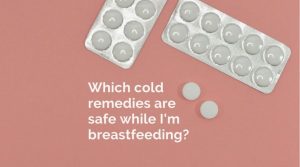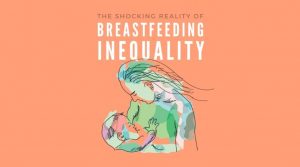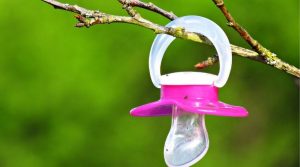Are you worried that your child will grow up alone, disfigured, and wearing braces at his retirement party if you let him suck on a pacifier?
Okay, that question may seem a bit hyperbolic but, let’s be honest, these cute little binkies can be a divisive topic among parents. Many moms and dads believe that, at best, pacifiers cause minor dental issues and, at worst, hamper a baby’s ability to properly breastfeed.
While very few things in parenting are wholly black and white, we don’t think anyone needs to be throwing the binky-sucking baby out with the bathwater.
When used correctly, pacifiers can be healthy for breastfeeding babies and helpful for parents looking for a few minutes of peace and quiet.
In this article:
Pacifier particulars
Pacifiers are not new. In fact, they’ve been around for thousands of years in one form or another. While previously made out of clay, silver, or even coral, our modern pacifiers are often crafted from materials that will mimic the feel of a mother’s nipple, such as silicone.1Recommendations for the use of pacifiers
ncbi.nlm.nih.gov
When can my baby have a pacifier?
It’s considered good practice to wait till your baby is at least one month old before introducing a pacifier; those earlier days should be spent encouraging your baby to nurse. During the first weeks of breastfeeding, he’ll be getting vital nutrients while the very act of him suckling will top up your milk supply.
Furthermore, be sure he’s perfectly capable of feeding on your breast before introducing him to that binky. Nursing from the nipple and sucking on a pacifier are two different actions; make sure your baby has mastered the former before introducing the latter.2When to Give a Newborn a Pacifier?
livestrong.com/ 3Infant and toddler health
mayoclinic.org
Picking a pacifier
It may take some trial and error before you find a pacifier your baby falls in love with, but breastfeeding mothers do not have to pick a specific brand or build. Just pay attention to the material from which it’s made and be sure it’s not something your baby is allergic to.
Oh, and pro tip: buy dishwasher safe. You’ll be washing them a lot!
Related: Itchy Breasts While Nursing (what, why, and how to fix it)
Benefits of pacifiers
While the controversy around pacifiers is not without merit, their use is hardly a black and white matter. Pacifiers have proven their worth in more than one way.
- Lowers risk of SIDS: Sudden Infant Death Syndrome (SIDS) is every family’s worst nightmare. While the cause of SIDS is still considered a medical mystery, pediatricians and researchers have long been looking for ways to reduce its occurrence. Surprisingly enough, evidence suggests that putting your baby to bed with a pacifier may help reduce the chance of SIDS. While the exact reason behind this eludes doctors and scientists, anything that can help ward it off is worth considering. If your baby will take a pacifier (don’t pressure him), allow him to start sucking it when you put him down for bedtime or for a nap. If it falls out while he is sleeping, do not put it back in his mouth. Do not use a pacifier with a neck-string or that is attached to clothing or toys, as these can pose strangulation hazards. Opt for a plain, boring looking binky during times of sleep.4Reducing the risk of SIDS
aafp.org / 5Risks and Benefits of Pacifiers
Source - Sucking instinct and pacifiers: You might have sometimes noticed that your baby doesn’t want to stop sucking your nipple. In fact, he may sometimes stay on the breast so long that he overindulges and gives himself an upset tummy. Pacifiers can satisfy that urge to suckle, so you won’t have to worry about your baby returning your milk to you in the form of vomit on your chest. What mom wouldn’t prefer an ‘all sales final’ policy on their breast milk?6Pacifiers: In or Out?
webmd.com - Self-soothing and pacifiers: That non-nutritive sucking instinct mentioned above is there for a reason. It can be a soothing method your child uses when feeling stressed or overtired. It’s simply not practical for any mother to walk around with baby attached to her nipple 24/7. A pacifier can provide an outlet for a baby’s need to self-soothe. This can make for a happier child, leading to a less stressful day for everyone.7Infant and toddler health
mayoclinic.org / 8WHAT SHOULD I KNOW ABOUT PACIFIERS?
physicianscenter.org - Flying and pacifiers: What parent hasn’t cringed at the thought of flying with a baby? Hell, what parent hasn’t cringed at the sight of someone else’s baby on their flight? Changes in pressure can cause the eardrum to distend inward or outward, leading to an ache we have all experienced at least once. As adults, we can swallow, yawn, or chew gum to alleviate this discomfort. Babies, however, are a bit young to be popping a stick of Double Mint into their mouths. It is recommended that you allow your baby to suck on something during take-off and during the initial descent to help ease their discomfort. If unsure about when the initial descent takes place (it’s not the actual landing, and frequently occurs earlier in the flight than one might think), ask a flight attendant to alert you. A sucking motion during these periods can encourage enough facial movement to get those eardrums back in the proper place. Your breast can accomplish this task but, let’s face it, nursing on a plane is hard enough without having to time it to the plane’s altitude. Yes, a decent breastfeeding cover will go a long way, but pacifiers make a very convenient option at times like this.9Flying with Baby: Parent FAQs
healthline.com / 10How does ear popping work?
healthychildren.org
Related: Does Breastmilk Stain? (Yep! and Here’s how to Remove It)
The drawbacks of pacifiers
We would not be doing our job if we didn’t point out that those cute little binkies can also have drawbacks.
- Nipple Confusion: This can be a concern if you start using a pacifier too early; studies have not shown pacifiers to cause breastfeeding problems when introduced at the proper age. However, you don’t want your baby to begin preferring an artificial nipple to your nutrient-supplying nipple, so if your little one starts to want their binky more than your breast, discontinue its use — even if your nipples are getting sore.11Pacifiers: In or Out?
webmd.com - Dental Concerns: While pacifiers can cause dental issues, research has shown that as long as pacifiers are no longer used after two years of age, most problems will likely resolve themselves within a six month period. Using pacifiers beyond that age, especially when permanent teeth begin to come in, can lead to crooked teeth, a narrow roof of the mouth, or even misaligned jaws.12Pacifiers: In or Out?
webmd.com / 13Risks and Benefits of Pacifiers
aafp.org - Ear Infections: Evidence suggests that your baby’s beloved binky might be a cause of ear infections, though scientists are unsure exactly why this is. Existing studies have shown that babies who use pacifiers are up to three times more likely to suffer from ear ailments than those who don’t.14Does pacifier use cause ear infections in young children?
ncbi.nlm.nih.gov /15Infant and toddler health Print mayoclinic.org
Pacifier DOs
- Have a strong breastfeeding routine before introducing pacifiers;
- Wash pacifiers frequently;
- Let your baby sleep with a pacifier;
- Routinely inspect pacifier to be sure it’s not damaged;
- Discontinue use if your baby starts preferring pacifier instead of nipple;
- Wean babies from pacifiers early.
Pacifier DONTs
- Use pacifiers in place of frequent feedings;
- Over-rely on pacifiers to soothe your baby;
- Buy pacifiers with neck-strings;
- Dip the pacifier in sugary mixtures to encourage sucking;
- Force a pacifier on your baby;
- Allow your baby to chew on a pacifier.16Pacifiers (soothers): A user’s guide for parents
mayoclinic.org / 17Infant and toddler health
ncbi.nlm.nih.gov
Wrapping up
Pacifiers are one of the more hotly debated topics among parents, and we totally understand why.
- Disadvantage: They do have disadvantages such as links to dental issues, ear infections, and possible breastfeeding problems with some babies.
- Advantage: On the other hand, they have a lot to offer our little ones. They could be a SIDS preventative, meet a sucking instinct when breastmilk is unavailable, and even help make traveling easier. Another advantage could be the possible introduction of the concept of balance into your baby’s life. You’re never too young to learn a little moderation…








